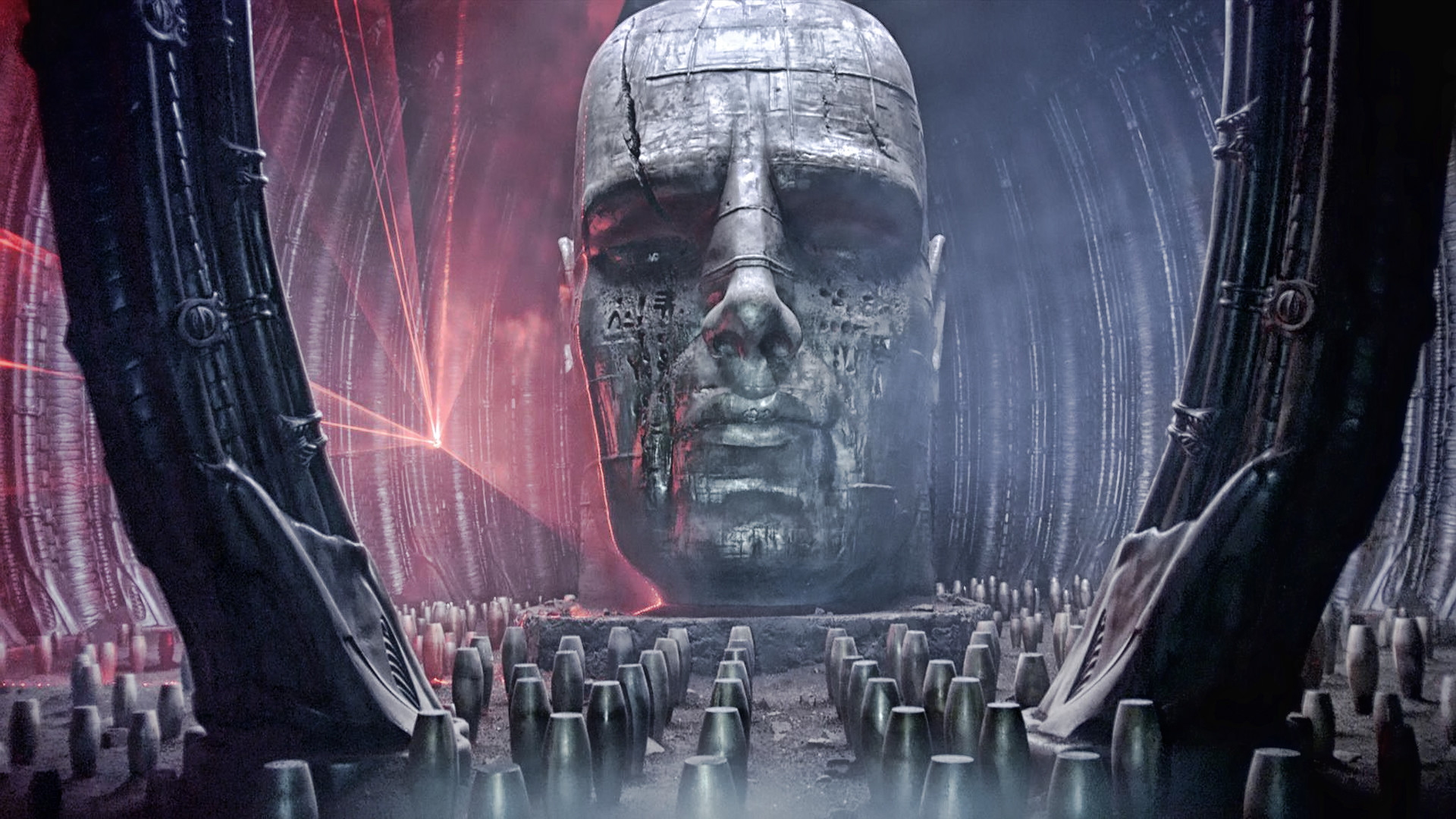Wherever we truly see the world around us, as if we are seeing it ‘for the very first time’, then we are seeing from a ‘non-equilibrium position’. And conversely, when we see things from an equilibrium position, then we are not truly seeing the world. Consciousness is a ‘non-equilibrium kind of a thing’, in other words. There can be no such thing as ‘an agreed way of seeing the world’ that is also a true way.
An ‘equilibrium position’ would mean seeing things from a position from which we have seen them from before (or seeing them from a position from which others see things). There is ‘agreement’ in both cases – in the first case I agree with myself that this is the right way to see the world, and in the second case I agree with someone else, or with a group, or with society in general.
A non-equilibrium position is therefore where there is no agreement. It is a position without precedents, a position that cannot be logically extrapolated from any other position that has ever been taken. When we are out of equilibrium we’re ‘out there’, and that’s all that can be said about it. We are out of our comfort zone; we’re somewhere that we’ve never been before. Not only are we no longer in ‘agreement’ with ourselves about what reality is or is not, we are also not in agreement with anyone else’s views either. We have no validation for our position whatsoever and so no one is ever going to take us seriously. Not in a million years is anyone ever going to take us seriously; it will be hard for us to trust ourselves in this as well. We’re much more likely to go along with the consensus.
There is this inexorable force acting on us to make us slide into the equilibrium position – energetically this is like a boulder rolling down to the bottom of a hill. Everything always reverts to the equilibrium position, as we all know, and this includes the way we see the world! This doesn’t say much for us however – what kind of justification is it for the viewpoint we take if we simply say that we went along with it because to do so was the easiest option? This is like Kurt Vonnegut’s observation that we agree with people not because we think that what they are saying is true, but simply because we wish to create an alliance with them, which is more pragmatic matter.
The equilibrium view of reality isn’t a view of reality at all therefore; it’s simply a ‘caving in’, it’s simply us allowing ourselves to be bullied and beaten down by mechanical forces. Seeing reality isn’t something that we do with the help or guidance of other people, it isn’t something we do with the help and support of experts, or society in general. Whenever we come across a group of people we can be sure of one thing and that is that the view of reality that they subscribe to has nothing whatsoever to do with the truth! This is a kind of ‘golden principle’ that no one knows about – don’t ever believe the type of ‘truth’ that is offered by groups! The consensus viewpoint is all about compromise and whilst knowing how to compromise is obviously a good thing in a lot of cases, it is most certainly isn’t a good thing when it comes to the truth! How can the truth be compromised and yet remained the truth’?
When we lose sight of the truth then we have lost sight of everything, and yet we are astonishingly ready to do exactly this! To find a person who isn’t prepared to lose sight of the truth at the drop of a hat (in exchange for whatever trivial offer of security comes with this exchange) is a very rare thing. It is rarer by far than we are prepared to admit. Compromise with the truth and what else is left to us? How can we afford to do this? What’s we never really focus on is the simple and straightforward fact that we live in what might be called a ‘coercive environment‘ – it’s not so much ‘coercive’ in terms of ‘what we are allowed to do’ or ‘how we are supposed to behave’ (although this of course comes into it) but rather it is coercive in terms of how we are allowed to proceed reality.
We are bullied and browbeaten right from the word ‘go’ to see the world in a particular culturally-validated (and therefore distorted) fashion and at no time is it made clear to us that this is what is happening. No one ever comes clean about doing this (i.e. about bullying those around them to buy into some particular lie or distortion); instead, everyone sees the view that they are promoting so ruthlessly as ‘the truth’, and so they can do whatever they want in this cause. This ignores the rather obvious fact that if our view was really ‘the truth’ then we wouldn’t need to force anyone to believe in it! For the most part – with obvious exceptions in the form of politics and religion – this ‘forcing’ is very subtle – how many of us, after all – stop to consider that our way of looking at the world has been forced upon us, and is not ‘ours’ at all? The process of being prevailed upon to buy into someone else’s (or into society’s) ‘reality tunnel’ (as Robert Anton Wilson puts it) is a thoroughly invisible one and we very rarely hear anyone complaining about or commenting upon it.
Just because the process is for the most part undetectable, and does not get commented about one way or another, does not mean that we should take it lightly however. What’s happening here is that our freedom is being taken away from us; if someone were to be held captive for the whole of their life then this would be considered a very grave crime, but when we lose the freedom to see reality in any other way than the way in which we have been told to see it then this doesn’t cause give rise to any comment. To lose the freedom to see reality in an ‘uncompromised’ way is a far more significant loss of liberty than that which is brought about by mere physical imprisonment; what could be a more total loss of liberty than to be trapped in some kind of windowless mental prison after all, which is exactly what we are talking about here. Society puts us in a physical prison if we transgress its laws, but it gives us a life sentence in a mental prison no matter what we do, and it doesn’t admit to doing so.
We could say that this is a very strange thing; we could say that it is a very strange thing that if we were to stop anyone on the street and ask them what they would most like in the whole wide world – if they could have it – then the person we were talking to would in all probability come out with a long list of things, but nowhere on the list would the person in question say that would like to see the world as it truly is rather than in the way that they have been prevailed upon to see it. Which is to say, we will never say that we want to see reality through our own eyes rather than seeing it through the distorting lens of the generic mind; the generic mind being ‘that mind which has been foisted upon us from the moment we were first able to understand what was being said to us’). This is how it is for all of us: we run around the place prioritising all sorts of goals but the one thing that we never prioritise is living life in a way that is authentically ‘ours’, and not via a viewpoint that is merely a collection of tawdry shop-soiled prejudices that have been passed unconsciously on from one person to another since time immemorial.
In a way we could say that this is very strange, but in another way it is of course only to be expected – the goals we spend all our time chasing after are artefacts of the false (socially-conditioned) viewpoint, and there never was and never will be such a thing as ‘a one-size-fits-all generic mind that contains within it the possibility for anyone subscribing to it to question its validity’ (just as there never was, and never will be, such a thing as a prejudice that is prepared to examine itself and freely admit its own prejudicial nature to itself). ‘Not prioritising freedom’ is a symptom of ‘the unfree mind that imagines itself to be already free’, which is the mind that we are all given as a present when we start off in life. Far from being curious about what it would be like to be free from the yoke of the conditioned mind, we cherish the prejudices that go to make it up. We cherish the absurd and obnoxious prejudices that go to make up the conditioned mind as much as we could ever possibly cherish anything – validating these wretched and unworthy prejudices is actually all we care about!
The everyday conditioned mind is purely there as a matter of convenience – we agree with others as a matter of convenience, and we agree with ourselves as a matter of convenience! It’s easy to agree and it’s hard to challenge (or question), so we almost inevitably go for ‘agree’. We go with the crowd. There are short-term benefits to be had as a result of making this agreement and that happens to be the only thing we are actually interested in – the short term benefit. We ‘go along to get along’. We are actually prepared to ‘sell our souls’ for the sake of this STB and the reason we can say this is because whilst it may prove pragmatically convenient to go along with the conditioned mind (or with the ‘coercive environment’) there is absolutely no benefit to be had in the long run. In the long run we reap utter disaster.
The reason we can talk so strongly in terms of ‘selling our souls’ is because the equilibrium position doesn’t actually lead as anywhere. Naturally the equilibrium position doesn’t lead us anywhere; equilibrium states, by definition, only ever lead to themselves. An equilibrium state is like Rome, and – as it is said – all roads lead to Rome! We can say that one rather significant ‘cost’ of slavishly adapting to the E-state is that ‘there is no way out’ (there’s ‘no way out’ because an equilibrium position only ever leads to itself, as we have just said. The other cost – we might say – is that there is no such thing as an E-state! We know that there is no such thing as an equilibrium state precisely because it ‘leads only to itself’ – this makes it into a tautology, i.e. a ‘thing that exists only by reference to itself’ and a thing that exists only by reference to itself doesn’t really exist at all.
The long-term cost we incur as a result of adaptation is therefore the cost of ‘putting all our eggs in a basket that isn’t actually there’. We put all our money on a horse that can’t win, on a horse that isn’t even going to leave the stalls. What is obtained by submitting in the way that we always submitted to the coercive environment (and becoming what it wants us to become) isn’t anything at all. We’ve agreed upon something that isn’t true just for the sake of an easy life, and by ‘agreeing’ to something that isn’t true, by pretending (both to ourselves and to others) that there is ‘a truth’ there, we have created a consensus hallucination.
This is therefore a classic case of ‘the emperor’s new clothes’. The whole of our socially-constructed reality is a case of ‘the emperor’s new clothes’, obviously enough. In one way this is easy enough to see, and yet at the same time we all still buy into it, we all still invest our entire lives in following the social script and – on this account – investing all of our life’s energy in illusion. We have made a compromise but the price for so doing is ridiculous, if not to say tragic – we have exchanged our birthright for a ‘mess of pottage’. We all do it, it is true, but there is no ‘safety in numbers’ when it comes to this business of ‘investing in illusion’ – the tragedy does not in any way become less just because everyone else is doing it too…
Image: from stageartz.com






